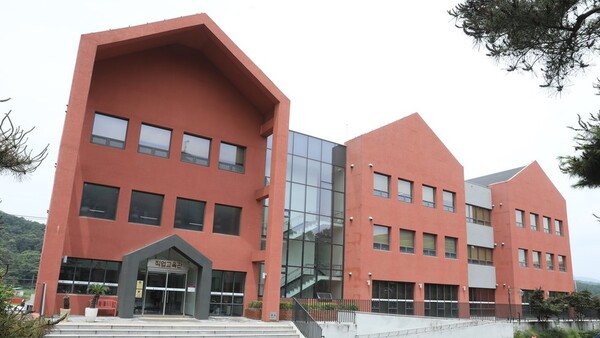
North Korean defectors are individuals who have left their homeland due to political, economic, and human rights reasons and have come to South Korea. They fled the oppressive environment they experienced in North Korean society in search of freedom and human rights. However, adapting to a new society is never easy. One of the most significant challenges they face is social integration. The social integration of defectors significantly impacts their quality of life, and this issue extends beyond personal matters to become a broader societal problem. This article examines the difficulties faced by defectors, the issue of economic independence, and the efforts made to support them.
Cultural challenges faced by North Korean defectors
One of the most prominent challenges defectors encounters when settling in South Korea is cultural differences. Because the environment in which they grew up in North Korea is vastly different from the culture in South Korea, they require a significant amount of time to adapt. For example, South Korea has a strong individualistic culture, while North Korea emphasizes collectivism. Additionally, defectors often struggle to understand the institutions and values of the new society, as their education and values in North Korea differ from those in South Korea.
Another issue is the language barrier. Though the defectors speak a North Korean dialect, it differs significantly from the standard Korean used in South Korea. Even though both use the same letter, Hangeul, the long-standing division and lack of interaction between the two countries have resulted in subtle differences in tone, expressions, and vocabulary, which lead to difficulties in communication. This often restricts their social interactions, and they may experience isolation from those around them. Social stigma is also a major obstacle. Defectors frequently experience discrimination and negative perceptions simply because they are from North Korea. This social stigma damages their self-esteem and makes social integration even more difficult.
Defectors suffer difficulties in areas such as education, employment, and forming social relationships. Many defectors struggle to adapt to the educational system, and some experience discrimination or disadvantages in the workplace. As a result, defectors often experience significant challenges in forming social relationships, continuing to confront many obstacles in their new environment, much like when they did when they left their homeland.
Economic independence challenges
Economic independence is another major challenge for North Korean defectors. After arriving in South Korea, many defectors struggle to achieve financial independence. One of the most significant issues they face is the lack of employment opportunities. Defectors need to find jobs to live economically independent lives in South Korea, but the discrimination and societal biases create significant barriers to finding suitable employment. It often leads them to rely on welfare systems. Many defectors also lack the skills or experience necessary to enter the labor market, which leads to delays in securing appropriate jobs.
Moreover, defectors struggle to adapt to a capitalist system, which is very different from the planned economy of North Korea. The lack of understanding of the capitalist market economy leaves defectors vulnerable to financial fraud, such as phone scams. In North Korea, financial systems were very limited, and access to financial information and knowledge was almost nonexistent. As a result, defectors often suffer significant financial losses or experience severe harm after migrating to a capitalist society.
Efforts for social integration
Both the government and the private sector have made various efforts to support defectors’ social integration. The government provides employment support, housing assistance, and psychological counseling services to help defectors adapt to their new society. Employment support programs are crucial in assisting defectors to achieve economic independence and live self-sufficient lives in South Korea. Housing assistance helps defectors establish a stable base for settling down, while psychological counseling services aid in healing trauma and finding emotional stability.
Hanawon (Settlement Support Center for North Korean Refugees) is a key government institution that supports defectors in settling down in South Korea. At Hanawon, defectors receive Korean language education, job training, and cultural adaptation programs to help them quickly adjust to their new society. In addition, Hanawon provides psychological counseling services to help defectors heal from trauma and achieve emotional stability. Through these various programs, defectors are able to achieve economic independence and acquire the skills and knowledge needed for social integration.
Private organizations also play an essential role in supporting the social integration of defectors. These organizations offer language education, job training, and cultural adaptation programs to help defectors integrate into South Korean society. Some organizations also provide emotional and psychological support, helping defectors build social networks and overcome isolation. Additionally, campaigns are conducted to combat social prejudice and discrimination against defectors.
The social integration of North Korean defectors is a complex issue that cannot be solved solely by government support. For defectors to fully integrate into society, a change in societal perceptions and continuous support are necessary. South Korean society must make a concerted effort to help defectors overcome the difficulties they faced in North Korea and live equally in the new society. Providing economic opportunities and psychological support is crucial for defectors to lead better lives. Ultimately, for defectors to achieve full social integration and lead independent, stable lives, the government, private organizations, and society as a whole must work together. The social integration of defectors is not just an individual issue, but one that has a significant impact on the growth and development of South Korean society. Ongoing attention and effort are needed for their complete integration.
- [469 Editorial] Climax in Progress, Applause Comes in the Middle
- [469 Trip] Rediscover Spring on Korea’s Unique Train Route
- [469 Cover] The Return of the Student Council:
- [469 Culture] Exam Culture of Korean University
- [469 K-trend] Healthy Pleasure, the Balance of Physical Wellness and Mental Enjoyment
- [469 Professor’s Eye] Why Has the New Beginning Stalled? A Philosophical Reflection on Birth Rates
- [469 Interview] The Flicker of Creativity:

